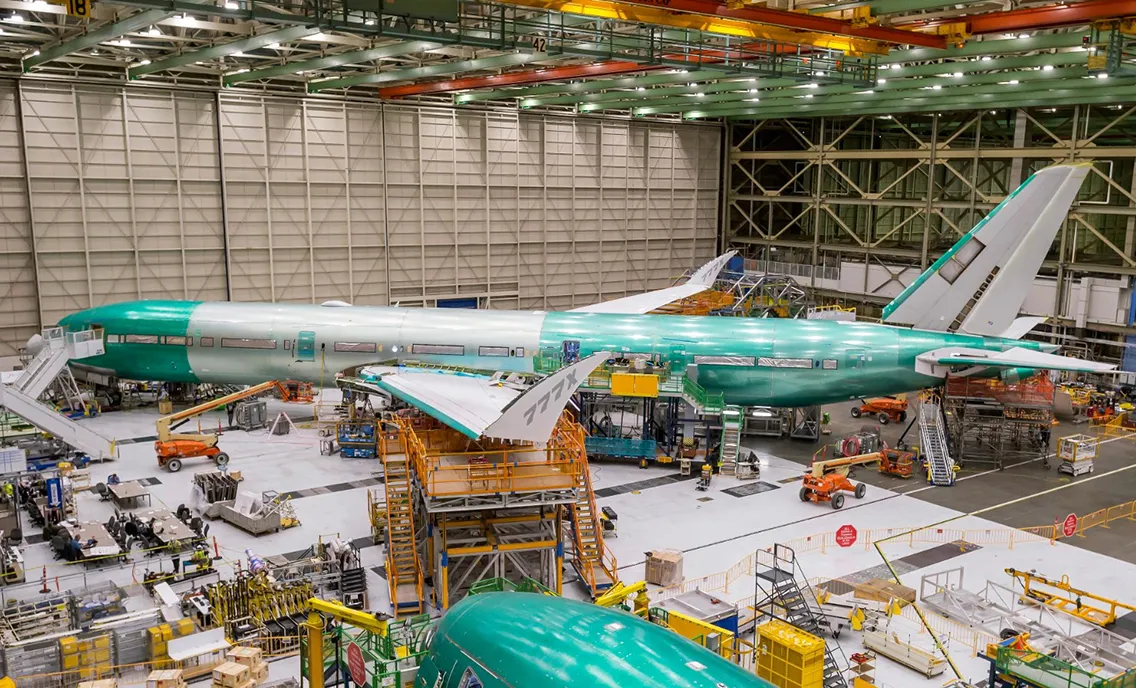
Boeing to restart production
Apr 16, 2020

Boeing is set to resume production after navigating significant challenges in the aviation industry. Following a period marked by reduced demand and operational disruptions, the company has implemented strategic measures to enhance efficiency and safety in its manufacturing processes. This restart aims to meet the increasing global demand for air travel, with a focus on delivering new aircraft and addressing existing backlogs. Boeing's commitment to innovation and sustainability will play a crucial role in its recovery, as the company seeks to regain its position as a leader in the aerospace sector while prioritizing the health and safety of its workforce.
Boeing, the renowned aerospace company, is set to restart production after a challenging period marked by unprecedented demand fluctuations and supply chain disruptions. With the aviation industry recovering from the impacts of the COVID-19 pandemic, the decision to resume production signifies a positive outlook for both Boeing and the larger aeronautical market.
The Current State of Boeing's Production
As of now, Boeing has announced plans to ramp up the production of its key aircraft models, including the 737 MAX and the 787 Dreamliner. This strategic move is designed to meet the increasing demand from airlines that are looking to rebuild their fleets. The decision comes at a time when air travel is experiencing a resurgence, with more passengers returning to the skies.
Production Timeline and Expected Output
Boeing's production restart will focus on several crucial models. The timeline is crucial, as the company aims to return to pre-pandemic production rates. Below is a table outlining the expected production levels over the next few quarters:
| Aircraft Model | Current Production Rate | Projected Production Rate (Q1 2024) |
|---|---|---|
| 737 MAX | 10 per month | 20 per month |
| 787 Dreamliner | 5 per month | 10 per month |
| 777X | 1 per month | 3 per month |
Challenges Ahead
Despite the optimistic outlook, Boeing faces several challenges as it restarts production. Supply chain issues continue to be a significant hurdle, affecting the availability of critical components. The company has been working closely with its suppliers to ensure that production targets can be met without compromising on quality or safety.
Additionally, the aviation sector is still grappling with a shortage of skilled labor, as many workers were laid off or left the industry during the pandemic. Boeing is actively recruiting and training new employees to fill these gaps and support the ramp-up in production.
Market Response and Investor Confidence
The announcement of Boeing's production restart has been met with enthusiasm from investors and market analysts. The company's stock experienced a boost, reflecting renewed confidence in its ability to recover and thrive in a competitive market. Industry experts believe that as Boeing increases its production capacity, it will be better positioned to capture market share and respond to the growing demand for air travel.
Environmental Considerations
As Boeing resumes production, it is also focusing on sustainability. The company has committed to reducing its environmental impact by developing more fuel-efficient aircraft and investing in sustainable aviation fuel (SAF). This commitment is increasingly important as airlines face pressure from regulators and consumers to lower their carbon footprints.
Boeing's efforts to integrate more sustainable practices into its production process are expected to resonate well with environmentally-conscious customers and stakeholders, further enhancing its market reputation.
Future Projections for Boeing
Looking ahead, Boeing's strategy involves not just increasing production rates but also innovating its product line. The company is investing in research and development to create next-generation aircraft that are faster, safer, and more efficient. This forward-thinking approach is aimed at ensuring Boeing remains a leader in the aerospace industry, even as competition intensifies.
With airlines expected to continue expanding their fleets in response to increasing passenger demand, Boeing's production restart is timely. The recovery of the global aviation market is likely to drive significant business for the company in the coming years.
Conclusion
Boeing's decision to restart production is a critical step in the recovery of the aerospace industry. As the company works to overcome challenges and capitalize on opportunities, it is poised to play a pivotal role in shaping the future of air travel. The focus on sustainability and innovation, combined with a commitment to meeting market demand, positions Boeing for long-term success.
As the aviation sector continues to evolve, keeping an eye on Boeing's progress will be essential for stakeholders, investors, and industry enthusiasts alike. The future looks promising for Boeing, and its efforts to ramp up production could be a defining moment in its storied history.
Related Articles

Explore Thailand: The Best Islands to Visit for Paradise, Adventure, and Relaxation

The Ultimate Guide to the Best Islands in Thailand for Your Next Getaway

Do babies need passports? How to get a passport for a newborn

How to get a U.S. passport fast: here’s how to expedite the process

What is Mobile Passport Control: 5 reasons why you should use it

SENTRI vs. Global Entry: A detailed guide

Do you need a passport to go to the Bahamas? Let’s find out

Do you need a passport to go to Mexico? A detailed guide

Do you need a passport to go to Canada? We got the answer

Do You Need a Passport for a Cruise: An Essential Travel Guide

Booster Seat Requirements: All the Rules to Follow in Your Rental Car

What Are the World’s Most Powerful Passports, and How Does Yours Rank?

How to Take a Passport Photo at Home: A Helpful Guide

You've got to have heart! Southwest's new livery

Your opinion: Should water be free on low cost carriers?

Young women bolder than guys as solo travellers
